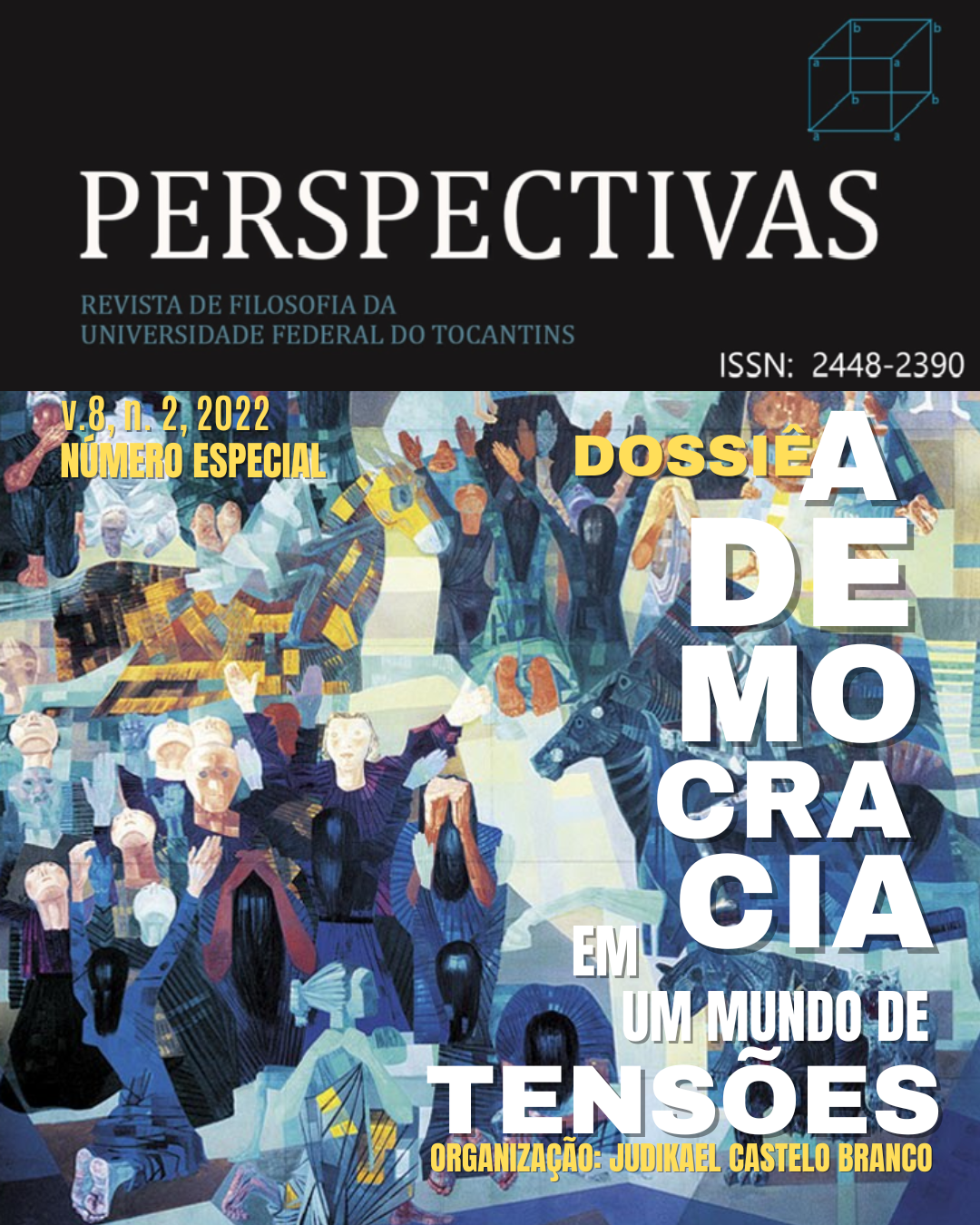The fragmented democracy in Mozambique and the voting trends of the State employee and “non-employee population”
DOI:
https://doi.org/10.20873.rpv8n2-71Keywords:
Democracy, Mozambique, Fear, State, VoteAbstract
This article aims to make a philosophical and historical comparison between the democratic theories of Thomas Hobbes and Norberto Bobbio with the democratic regime in Mozambique and the trends in the vote of state officials and the general population. The article is based on the concepts of democracy, state, fear and voting. In the work entitled “African philosophy: from independence to freedom” published in 2014, the Mozambican philosopher shows the idea that there was no participation of the Mozambican people in choosing the political system that he thought was best. But once it was the elite that chose the political and economic system for themselves. Ngoenha states that in colonial times, the participation of Mozambicans in carrying out major projects for Mozambique was passive. Even in the era of Mozambique's independence in 1974, this participation remained passive. Ngoenha questions what was at stake in these States and responds by evoking the role of the subject in history in the creation of democracy in Mozambique “we were not asked how we saw the future”. The idea of democracy in Mozambique was created with a different perspective than that of Thomas Hobbes and Norberto Bobbio.
References
BOBBIO, N. Liberalismo e democracia. Trad. M. A. Nogueira. São Paulo: Brasiliense, 1988.
BOBBIO, N. Una filosofia militante. Studisu Carlo Cattaneo. Turim: Einaudi. 1971.
BOBBIO, N. Tra due repubbliche. Roma: Donzelli, 1996a.
BOBBIO, N. “Democracia”. In: SANTILLÁN, J. F. (Org.). Norberto Bobbio: el filósofo y la política. México: Fondo de Cultura Económica, 1996b, pp. 229-238.
BOBBIO, N. Diário de um século. Autobiografia. Rio de Janeiro: Campus, 1998.
MOÇAMBIQUE, Constituição da República de 1975. Imprensa Nacional de Moçambique, 1975.
FERNANDO, C. T. “Operação produção: a estratégia de inserir os chamados improdutivos, parasitas e inimigos da revolução no governo de transição em Moçambique entre 1975 a 1992”. Revista Espacialidades [online], v. 15, n. 1, 2019.
FOUCAULT, M. O corpo utópico. São Paulo: n-1 Edições, 2013.
HOBBES, T. Do cidadão. São Paulo: Martins Fontes, 1992.
HOBBES, T. Os elementos da lei natural e política. Tratado da natureza humana: Tratado do corpo político. São Paulo: Ícone, 2002.
HOBBES, T. Leviatã. São Paulo: Martins Fontes, 2003.
LEIVAS, C. R. C. “Paixão, democracia e deliberação em Hobbes e Walzer”. Trans/Form/Ação, v. 32, n. 2, 2009, p. 63-74.
MACHEL, S. M. Estabelecer o poder popular para servir às massas. Rio de Janeiro: Codecri, 1979.
MARX, K. “Crítica del derecho del Estado de Hegel”. In: MARX, K.; ENGELS, F. Obras fundamentales. Vol. 1. Ciudad de México: Fondo de Cultura Económica, 1987.
MARX, K.; ENGELS, F. A ideologia alemã. Trad. L. C. de Castro e Costa. São Paulo: Martins Fontes, 2001.
MILL, J. S. Considerações sobre o governo representativo. Brasília: EDUNB, 1981.
NGOENHA, S. E. Filosofia Africana: Das Independências às Liberdades. Maputo: Paulistas, 1994.
ROESCH, O. “Is Renamo a Popular Movement in Mozambique?”. Southern African Review of Books, dez. 1989.
Downloads
Published
How to Cite
Issue
Section
License
Copyright (c) 2023 Celestino Taperero Fernando

This work is licensed under a Creative Commons Attribution 4.0 International License.
The Magazine is under the Creative Commons Attribution 4.0 International Public License (CC BY 4.0), according to which:
1) The authors retain the copyright and grant the journal the right of first publication, with the work simultaneously licensed under the Creative Commons Attribution which allows the sharing of articles published with the recognition of authorship and initial publication in this journal.
2) Authors are authorized to enter into additional contracts separately for distribution of the version of the work published in this journal, as long as there is recognition of authorship and initial publication in Perspectivas.
3) Authors are authorized and encouraged to disseminate published texts with proper references to the journal and its authors.





















